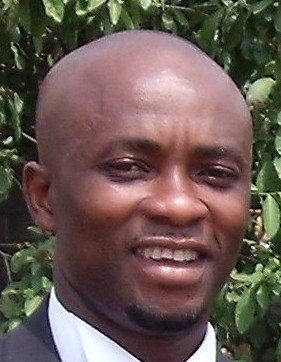"The one who lacks the ability to dance will criticize the drum." – African proverb A stunning day has emerged, accompanied by its...

"The one who lacks the ability to dance will criticize the drum." – African proverb
A stunning day has emerged, accompanied by its typical mix of movement and sound. As usual, we fill our thoughts with views, bits of information, and the vivid tales that people freely add to discussions. We listen, we exchange, we share, and we confidently repeat what we've only partially grasped.
It is satisfying to appear knowledgeable. It can be uplifting to think we have sufficient understanding. However, are we checking the information we are taking in? This might not be easy to accept. After all, no one wants to be informed that the knowledge they are proud of is incomplete. Yet, the truth is that many of us carry around partial truths.
These pose a greater threat than ignorance. While ignorance acknowledges its lack of knowledge, half-truths claim to have complete understanding. This false sense of knowing is what hinders our intelligence, clouds our judgment, and prevents us from finding genuine solutions. We frequently comfort ourselves with the belief that we "basically understand" a situation.
A title here, a gossip there, a casual remark cloaked in certainty, and before we know it, we believe we have the complete story. In our hearts, we realize we don't. Yet, a part of us feels at ease with the easy simplicity of partial truths. They prevent us from the unease of deep thinking, careful analysis, or questioning our own beliefs. They allow us to stay asleep in the cozy nest of superficial comprehension.
Let's be truthful with ourselves; partial truths lead to intellectual stagnation. They take away the very power that makes humans innovative, capable of solving problems, and able to create new opportunities. And let's face it. Partial truths are tempting because they don't require responsibility. They satisfy curiosity without needing effort.
They present us with the appearance of knowledge without the effort of study. However, our unwillingness to question what we hear does not render it accurate. Nor does it make us wise. A partial truth is like a faulty instrument; it is incapable of constructing anything. It cannot repair anything. It only leads us astray.
That's why you shouldn't be content with simple solutions or convenient justifications. Avoid aligning with the masses who passionately and confidently repeat unproven statements. Although it might provide temporary satisfaction, it weakens your mental acuity. It diminishes your capacity for critical thinking. It blurs your ability to distinguish truth from falsehood. Partial truths also carry a unique arrogance. They present themselves as whole, while concealing the missing elements that hold the true significance.
As a result, they hinder advancement. They lead us to pursue illusions. They drive communities to squander time on incorrect discussions, misplaced conflicts, and ineffective remedies. We cast votes based on partial truths. We take monetary choices based on partial truths. We blame, evaluate, categorize, and criticize based on partial truths. And then we question why nothing changes, why our issues remain, and why uncertainty dominates.
This implies that the reality of partial truths should encourage us to appreciate clarity, depth, and genuine exploration. It should motivate us to pose tough questions, examine assumptions, and pursue the complete narrative even if it is unsettling. An individual who insists on the entire truth becomes someone who perceives more clearly.
The person who has greater vision is much more likely to discover genuine solutions. We understand that partial truths limit the mind, while complete truths broaden it. Partial truths confuse judgment, but complete truths enhance it. Partial truths generate illusions, whereas complete truths lead to comprehension. And comprehension, true comprehension, is where intelligence originates.
If we aim to address issues within our homes, workplaces, communities, and countries, we need to develop minds that seek absolute truth. Not the partial pieces that support our preconceptions. Not the softened versions that comfort our pride. But the complete truth can be harsh, intricate, and challenging. We understand that our humanity has never progressed through superficial thinking. Innovation, peace, justice, and advancement all emerged from the bravery to think profoundly, challenge boldly, and learn thoroughly. Partial truths have never constructed a bridge, eradicated an illness, won a conflict, or led a nation effectively. Only the complete truth possesses such potential.
Today, your challenge is to recognize that partial truths do more than mislead you; they diminish your strength. They take away your capacity to think clearly, make wise choices, and lead with assurance. The key question is: will you be a container of shallow pieces or a source of complete understanding? How many decisions in your life, and how many issues around you, stay unsolved simply because you've been working with incomplete truths? When a mind accepts half-truths, it becomes like a seed planted in shallow earth. It might sprout with noise and confidence, but it won't develop deep roots to produce fruit. On the other hand, a mind built on full truth is like a seed planted by a stream—it grows strong, steady, and productive.
__________________________________________________________________
Kodwo Brumponserves as an executive coach at Polygon Oval, a progressive Pan African management consultancy and social impact company that utilizes data analytics to identify the unique potential and requirements of organizations and businesses, enabling them to create synergies that drive their strategic growth and ensure their sustainability.
Feedback, recommendations, and inquiries regarding presentations and workshops should be directed to him atkodwo@polygonoval.com
Provided by SyndiGate Media Inc. (Syndigate.info).


